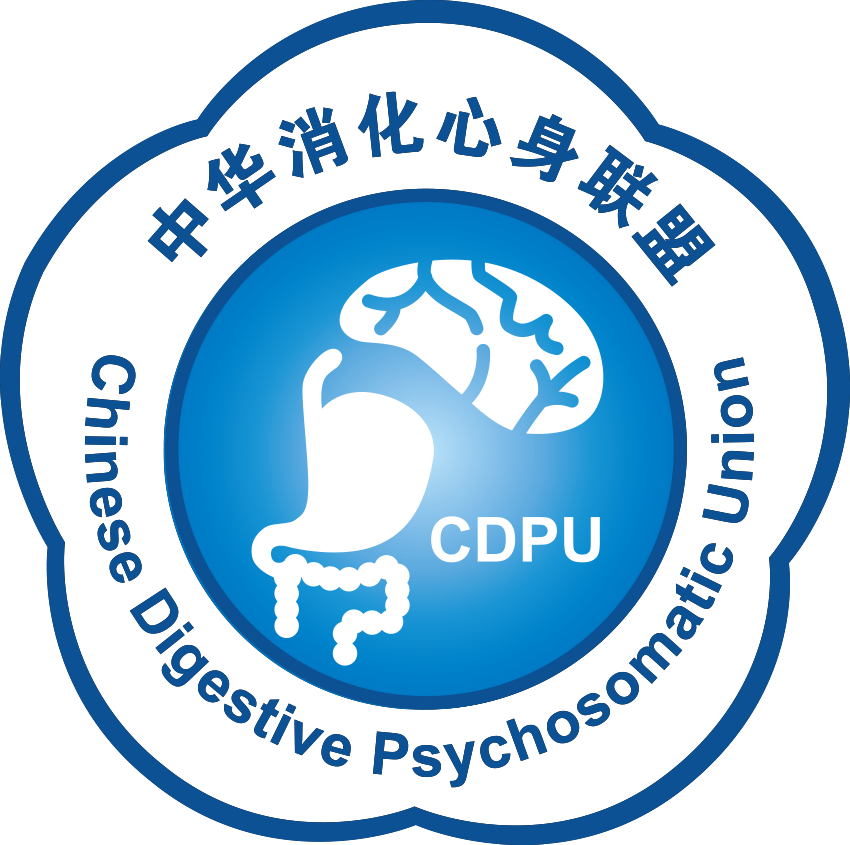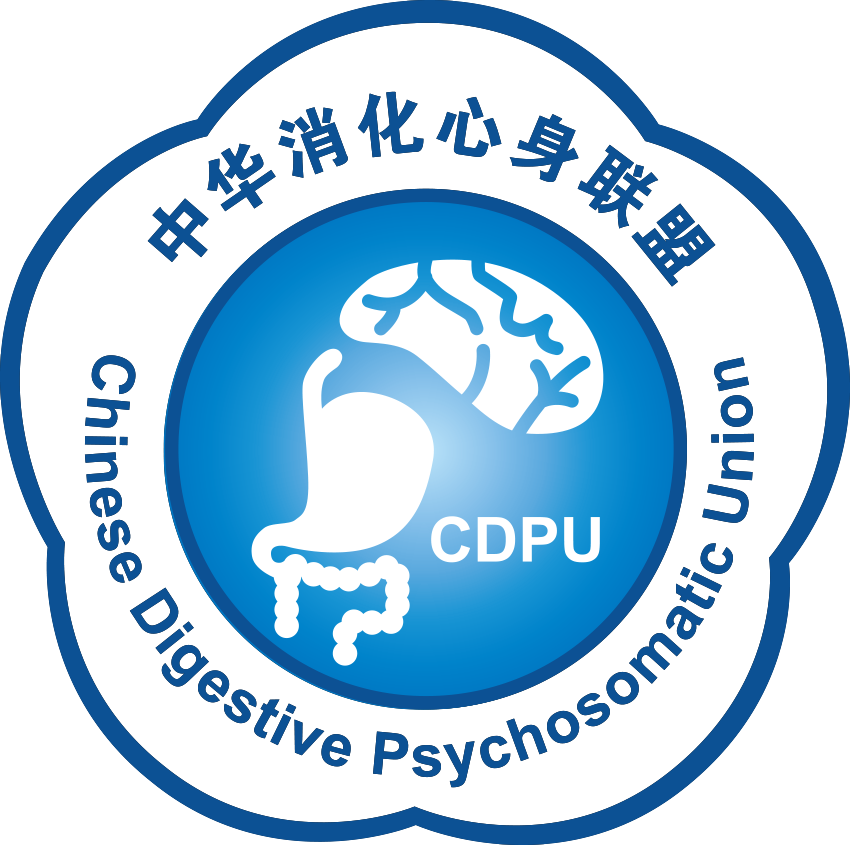psychosomatic gastrointestinal disorders (part Il)
Introduction
Psychosomatic gastrointestinal disorders (PGIDs), ina broad sense, refer to health problems for which theetiology, pathophysiological mechanisms, and clinicalmanifestations are associated with both psychologicaland digestive systems. Clinically, PGIDs comprisenot only functional gastrointestinal disorders (FGIDs)but also organic gastrointestinal (Gl) diseases, suchas inflammatory bowel disease, chronic liver disease.tumors, ete., reflecting the transition of the medicalmodel towards the biopsychosocial model [1.2]
From a specialized perspective, PGIDs canbe understood from various angles.(l)From thestandpoint of psychiatry and psychological medicinethe essence of PGIDs is the projection of psychologicaland psychiatric problems in the digestive system.Clinical presentations can be summarized into 4categories: (i)GI symptoms associated with emotionaland mood abnormalities; (ii)GI symptoms associatedwith cognitive impairments or biases; (iii)Imaginaryor suggestible Gl symptoms; and iiii) Changes inbiological indicators related to psychological factors.(2)From the perspective of gastroenterology, PGIDsparticularly FGIDs, have been recently defined asdisorders of gut-brain interactions (DGBls), which canbe categorized into 3 types: (i) GI disorders with anetiology of psychosocial and behavioral abnormalities;(ii)GI disorders accompanied by manifestations ofpsychosocial abnormalities; and (iii)GI disorders thatrespond unsatisfactorily to conventional treatmentsand need the application of psychosocial therapies toenhance eficacy,
The incidence of PGlDs is rising in recent years.According to a national survey, over 40% of thepopulation suffer from at least one type of DGBls,such as functional dyspepsia (FD) and irritable bowelsyndrome (lBS) .4, The proportion of organicGI diseases is also high. The rate of patients withinflammatory bowel disease (lBD) comorbid withanxiety and depression is 8%-12% . The proportion ofdepression in patients with cirrhosis is approximately10%-40% l6 and that of patients with malignanttumors exhibiting anxiety and depression symptomsis 10%-20% 7, The comorbidity of psychosomaticabnormalities exacerbates patient symptoms and reduces quality of life.
However, the pathogenesis of PGIDs is not yet fullyelucidated, leading to a lack of effective interventiontargets.Consequently, inadequate symptom reliefmay prompt patients with PGIDs repeatedly visitdoctors leading to a significant waste of medicalresources. This article reviews the latest advances inthe pathophysiological mechanisms and symptomcharacteristics of PGIDs.
Diagnosis of PGlDs
Diagnosis
The diagnostic key points for psychosomaticdigestive issues include: (1)Adhering to the holisticpsychosomatic medical concept of the biopsychosocialmodel. (2)Conducting the assessment of psychosocialstatus throughout the entire medical process, includingdoctor-patient communication, diagnosis, treatment,follow-up, and chronic disease management. Currently,it is recommended to refer to two classical references.i.e., the Multi-dimensional Clinical Profle (MDCP) forfunctional gastrointestinal disorders and the sections on“Somatoform Disorders” and “Other Medical ProblemsRelated to Psychiatric and Psychological Factors’in the Diagnostic and Statistical Manual of MentalDisorders, Fifth Edition (DSM-5).
Currently, the Mental Health Law in China doesnot support the diagnosis and treatment of psychiatricand psychological disorders by doctors withoutpsychiatric and psychological qualifcations. Therefore,gastroenterologists or general practitioners withoutpsychiatric and psychological qualifications are notpermitted to diagnose diseases within the scope ofpsychiatric and psychological medicine. However, theycan be made descriptive diagnoses of psychologicalabnormalities, such as depressive or anxious statebased on the recommendations of psychiatric andpsychological specialists.
Differential diagnosis
For non-psychiatric and non-psychological specialists,the differential diagnosis for psychosomatic digestivedisorders should be focused on determining whether referral to a specialized institution or consultation with a specialist is necessary, Aceording to the RomeIV Criteria for Functional Gastrointestinal Disorders,the following nine situations warrant considerationfor psychiatric consultation or referral:(l)Persistentanxiety for most of the time; (2)Persistent depressionfor most of the time; (3)Frequent suicidal ideation; (4)History of sexual abuse; (5)Past or current history ofphysical abuse;(6)Severe to very severe pain withinthe last 4 weeks;(7)Excessive worry about physicalillness; (8)Physical symptoms that significantly impairdaily life; (9) Drug abuse issues. Notably, the presenceof either item 3 or item 9 is mandatory for referral orconsultation.
In clinical gastroenterology practice, differentialdiagnosis of psychosomatic digestive issues shouldalso pay attention to the identification and follow-upevaluation of somatic symptoms and other psychoso-matie problems that may coexist with organic diseases.It is crucial to always recognize that psychosomaticissues and organic changes are often concurrent anddo not have exclusivity. Regardless of the effective-ness of psychosomatic interventions, the standardizedscreening process for organic diseases (such as tumors)should be emphasized during diagnosis and treatmentof psychosomatie digestive disorders.
Treatment of psychosomatic digestive disorders
The treatment goals for psychosomatie digestive is-sues are to improve gastrointestinal and psychologicalsymptoms, enhance quality of life, and reduce theadverse influence of psychosocial factors on patientswith organic diseases. Effective communication and atrusting relationship between the physician and patientare crucial for accurately identifying the etiology andpathogenesis of psychosomatic digestive problems.They are also essential for selecting appropriate treat-ment strategies and obtaining satisfactory complianceand therapeutic outcomes. Treatment modalities shouldinclude a personalized, comprehensive approach thatencompasses dietary modifications, lifestyle adjust-ments, pharmacotherapy, psychological, cognitive.and behavioral interventions. Pharmacotherapy typi-cally involves the use of neurotransmitter-modulatingagents, medications specife for digestive diseases, and an individualized combination strategy,
Non-pharmacological therapy
Non-pharmacological treatment for psychosomaticdigestive issues should include patient education re-garding the disease, dietary guidance, and lifestyle andbehavioral modifications, as well as psychological,cognitive, and behavioral interventions. Physicianswithout psychiatric qualifications can provide psy-chological counseling and behavioral guidance thatare beneficial to gastrointestinal health. The focus ofdietary and behavioral adjustments is to restore normaeating patterns and circadian sleep rhythms, Regularphysical exercises such as meditation, yoga, and TaiChi (for no less than 150 minutes per week) are ben-eficial for the treatment of psychosomatie digestiveproblems. Therapies such as mindfulness and hypnosisare psychological treatment modalities that can only beimplemented by physicians with specialized psychiat-ric qualifications. Laws and guidelines do not supporttheir use by general practitioners, For detailed infor-mation on these therapeutic methods, please refer tospecialized psychiatrie literature.
Pharmacological therapy
The therapeutic agents for psychosomatic digestivedisorders primarily inelude neuromodulators and con-ventional gastroenterological medications. Unlike inpsychiatry, for psychosomatic digestive issues encoun-tered in gastroenterology, pharmacotherapy selectionis recommended to be guided by advancements inthe study of brain-gut interactions, with a focus onmulti-target drugs targeting the central nervous system(CNS), the enterie nervous system (ENS), and the in-terplay between the CNS and ENS.
Patients with emotional disturbances such as anX-iety, irritability, and agitation often exhibit gastroin-testinal functional irritability and a tendency for neu-roimmune inflammatory disorders. These patients aresuitable for antidepressants with sedative and anxiolyt-ic effects (e.g., tricyclic antidepressants, fuvoxamine,paroxetine, duloxetine, etc.). On one hand, the centralactions of these agents specifically improve emotionaland mood issues and, through brain-gut axis regulation,alleviates gastrointestinal irritability, On the other hand,these neuromodulators, while enhancing excitatory neurotransmitters such as serotonin (5-hydroxytrypt-amine, 5-HT)in the gastrointestinal tract, often havecholinergic antagonistic efects, which is beneficial forinhibition of the exaggerated gastrointestinal motili-ty and secretion. Patients with predominant negativeemotional responses such as depression, suppression,and low mood often exhibit impaired gastrointestinalfunction and infectious inflammatory manifestations.These patients are suitable for antidepressants that canenhance psychomotor function (e.g., fluoxetine, ser-traline, citalopram, venlafaxine, etc.). For patients withpsychological and perceptual abnormalities, multi-tar-geted neuromodulators with diverse mechanisms ofaction are recommended (e.g., antidepressants with5-HT2 receptor modulation, atypical antipsychotics,circadian rhythm regulators, sedatives, ete.).
Unlike clinical practice in psychiatrie and psyehological medicine, gastroenterologists primarily dealwith digestive diseases. Therefore, the selection of neu-romodulators, dosages, and treatment duration shouldreflect the unique considerations of gastroenterologyFor indications related to psychiatric and psychologicalissues,the selected neuromodulators should have noobvious gastrointestinal adverse effects. The efficacyof these agents is often dose-dependent. The treat.ment duration should follow guidelines and standardsfrom psychiatrie and psychological specialties, with afull course of treatment typically lasting more than 6months, followed by gradual tapering. For patients presenting with gastrointestinal complaints as the primaryclinical issue, while their psychiatric and emotional ab.normalities do not meet the diagnostic criteria for psy.chiatrie disorders, a low-dose initiation with gradual ti.tration to achieve satisfactory eficacy is recommended,The longer the time to achieve therapeutic effect, thelonger the consolidation treatment and gradual taperingprocess required. For patients without diagnosable psychiatric issues, while cannot achieve satisfactory reliefof gastrointestinal symptoms with standard gastroen-terological pharmacotherapy, a trial of low-dose neuro-modulators can be considered. The treatment durationmanagement can refer to the application standards ofcommonly used gastrointestinal medications.
Drugs targeting gut-brain regulation include:(1)Regulators of the gut microbiota, including probiotics,prebiotics, and non-absorbable antibiotics. Current researeh indicates that the therapeutie effects, selection ofstrains, dosages, and treatment duration for probioticsand prebiotics should follow individualized principles.Studies have shown that probiotics for irritable bowelsyndrome (lBS) exhibit a dose-dependent eficacy, witha typical treatment duration exceeding 4 weeks. Theeffect of probiotics can reach a "ceiling effeet" at 8-10weeks, which can maintain for approximately 4 weeksafter discontinuation of treatment, The indications andtreatment duration for non-absorbable antibiotics arestill lacking suficient consensus evidence. (2) Anti-in-flammatory agents. They include cyclooxygenase-l(COX-1)inhibitors, leukotriene receptor antagonists,inflammatory cell stabilizers, histamine Hl/H2 recep-tor antagonists, 5-aminosalicylic acid, monoclonalantibodies against inflammatory eytokines, and cortico-steroids (e.g., budesonide). Their clinical signifcanceis still under exploration.
Health education
The term "psychosomatic digestive diseases"reflects an understanding of the core mechanismsof these conditions. However, during diagnosis andtreatment, it is essential to emphasize doctor-patientcommunication to improve patients' understandingof their disease. Studies have found that patients withpsychosomatic digestive diseases often experiencestigma related to their illness and medications, whichseverely impacts treatment adherence and outcomes.This stigma arises not only from the prolonged natureof the disease and its impact on quality of life butalso from the attitudes of healthcare providers andfamily membersls, Therefore, it is crucial to avoidtelling patients that they "have no disease", the causeis "unclear," and labeling their condition solely as a"psychiatrie disorder." Adequately informing patientsabout the characteristics of their disease, the rationalefor treatment and medication use,dosage, duration,and potential side effects is crucial for enhancingtheir understanding, reducing stigma, and improvingadherence and therapeutic outcomes.
Currently, there are still issues of low awarenessand poor treatment outeomes for psychosomaticdigestive diseases, Healthcare professionals need to enhance their understanding of these conditions andimprove their treatment approaches in order to enhancetherapeutie efcacy and quality of life for patients withpsychosomatic digestive diseases.
Conflicts of interest statementThe
author declares no conficting interest.
Funding
This study was supported by grants from the NationalNatural Science Foundation of China (Grant Nos.82170554,81970473,81970472,and 81670484).
References
1.Cao JX,Ding LX.Psychosomatic Practice inGastroenterology:New Insights and Models fromChina,Psychother Psychosom.2019;88(6):321-326.
2.Schiopu CG, Stefánescu C, Bolos A, et al.Gastrointestinal Disorders with PsychiatricSymptoms:Involvement of the Microbiome-Gut-Brain Axis in the Pathophysiology and CaseManagement.Microorganisms.2022;10(11):2199.
3.Hartono JL,Mahadeva S, Goh KL. Anxiety anddepression in various functional gastrointestina)disorders:do differences exist? J Dig Dis.2012;13(5):252-7.
4.Black CI, Drossman DA, Talley NJ, et al.Functional gastrointestinal disorders: advancesin understanding and management. Lancet.2020:396(10263):1664-1674.
5. Choi K, Chun J, Han K, et al. Risk of Anxiety andDepression in Patients with Infammatory BowelDisease:A Nationwide,Population-Based Study. JClin Med. 2019;8(5):654.
6.Hernaez R,Kramer JR,Khan A,et al. Depressionand Anxiety Are Common Among PatientsWith Cirrhosis.Clin Gastroenterol Hepatol.2022:20(1):194-203.e1.
7.Pitman A,Suleman S, Hyde N, Hodgkiss ADepression and anxiety in patients with cancer.BMJ.2018:361:k1415.

